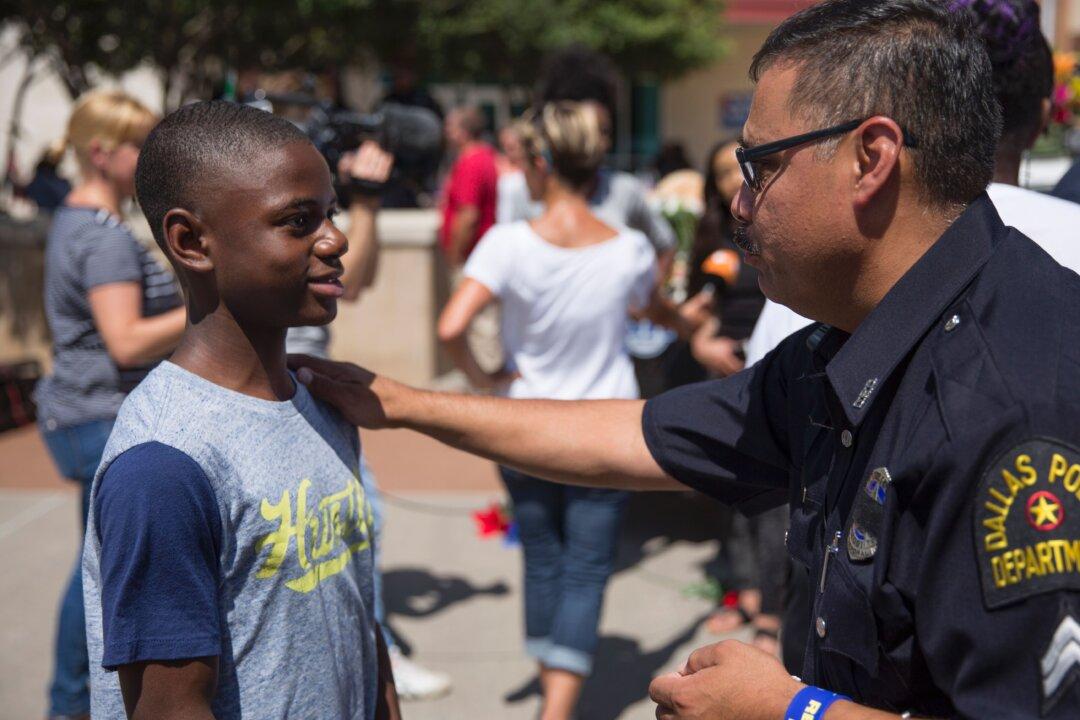Tear gas haze shrouds the late night sky as I stand face to face with a deafening mob of what the media had labeled as peaceful protesters. I shudder to imagine what they would define as violent. I remind myself that these protesters are young—mostly high schoolers and college students. They’d been brainwashed into hating the very country that offered them every opportunity they could possibly want.
Yet the eyes of the country are on these kids, and somehow they’ve successfully duped people into buying their agenda. I’m young, too, just barely 23. Why is my voice so often silenced? Why am I told I’m too young to have an opinion as they are hailed as heroes?
My man stands protectively at my side. I clutch his arm tightly as I blink back my tears. This wasn’t the America I love. My father stands just a few feet before me, his stance rigid and his eyes wide. He’d later say that, at almost 60 years old, he’d never witnessed anything like this.
Vulgar insults ring out through the air in an eerie cacophony, many directed at the law enforcement officers pacing the barricades. The men in blue hold firm, showing no emotion, and never once reacting in the anger that I’m sure they feel. Occasionally, when the protests get physically aggressive, they deploy another canister of tear gas—a reasonable action that is later labeled as “police brutality.”
At one point, a protester is hurt. Several others, clad in black, run straight to the very cops they had cursed. Without a second thought for their own safety, the cops push through the chaos.
What started as a national movement to fight for racial equality quickly turned into a political power struggle, an all-out war against all things American: patriotism, capitalism, our president, and our Judeo-Christian roots. As we witnessed that night, even our small, southern town wasn’t spared from the wrath of these social justice warriors. Our bubble had shattered, and our rose-colored lenses along with it. Social media headlines couldn’t prepare me for seeing tyranny with my own eyes.
For days after the experience, I felt hopeless. What could I do? My efforts to speak for freedom seemed so worthless.
A few months later, a glimpse of hope is restored. I stand on a street corner as dozens of cars pass before me in a parade of sorts. Smiling children lean out the windows, holding signs in support of our local police force. The cars are decorated brightly with blue-line flags, American flags, balloons, and chalk paint. Horns blare while the onlookers cheer.
Behind me, a crowd is gathering in front of our county police department. Our men in blue are directed to line up on the sidewalk. This time, they show emotion: smiles, laughter, and even some happy tears.
The parade finishes and a small truck arrives. The back opens, revealing dozens and dozens of hand-wrapped gift baskets loaded with food, small gifts, and handwritten notes. Children line up behind the truck; it’s their job to distribute the goodies. I had been told earlier that the event organizers were intentional in this plan, striving to create positive and honorable relationships between the officers and children.
A precious 3-year-old I know sprints toward the line and stops short to give me a hug. Her hair bow, black with a thin blue line, is about as big as her head. As they say in the South: the bigger the bow, the closer to heaven. She takes off back toward the line, excited to get her basket and find just the right officer to bless. Her grandmother watches proudly.
This crowd isn’t angry. They aren’t clad in black. They don’t have to carry goggles in preparation for tear gas or wear masks to avoid identification. They’re just families of all ages, colors, and backgrounds. There’s no political agenda. We simply share the mutual understanding that even though there’s some bad cops, the good ones are still heroes. And that even though America isn’t perfect, we’re still proud to be patriots.
The children make their special deliveries with glowing faces. Hugs, handshakes, encouraging words, and picture-taking abound. And there’s smiles. Lots of smiles. Because others, like me, are realizing that there’s still hope. My man stands next to me here, too. I reach for his hand to squeeze it, and I remember: This is why I love America.

